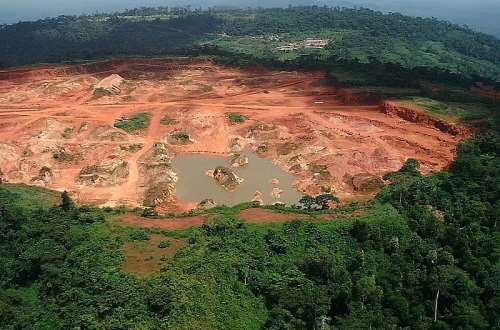A Rocha Ghana (ARG), an environmental-based NGO, has rejected claims by the Minister of Lands and Natural Resources that Ghana’s forest reserve remains intact.
Responding to a question on the floor of Parliament on February 23, on the State of Ghana’s Forest Reserves, the sector Minister Samuel Jinapor said the ecological integrity of Ghana’s Forest Reserves has, largely, been maintained despite several threats which impact negatively on the all-important resource.
However, according to A Rocha Ghana, the Minister’s claims appears inconsistent with publicly available information.
A statement signed by the Deputy National Director, Daryl Bosu noted that, “The Minister stated that the ecological integrity of Ghana’s Forest Reserves has largely been maintained. This is a moot point. With the extensive damage from galamsey, tree felling and farming in some forest reserves yet to be restored, this statement is far-fetched. Forest Reserves such as Krokosua, Sui River, Tano Suraw Extension, Afao Hills, Upper Wassaw, Anhwiaso West and East, Supuma Shelterbelt, Tano Offin, and Denyau Shelterbelt all appear to be lacking ecological integrity due to extensive damage.
“Further, in mid-January, forest sites Denyau Site 1,2 and 3, Supoma Site 1 and 2, Ntakem 1 and 2, and forest reserves of Numereso, Bepo Tintin, Kubi, Watreso, Adamso, Bunsu, Brechakrom, Amponuase, Apapraman, Hiayeya, Pomposo were all reported to be live galamsey sites,” it added
According to A Rocha Ghana, despite the government’s ban on mining near water bodies as well as in Forest Reserves, the Minerals Commission has given out several licences in 2022 and 2023 that straddle critical water bodies.
“It is incomprehensible why the Minerals Commission is issuing licences alongside and across rivers when the devastation of gold mining is now so clear. That these licences are for precise locations already decimated by galamsey is even more disturbing. The communities are suffering greatly from the pollution of their water sources and farmlands, which is already affecting their health including kidney problems. Mining leases across and adjacent to rivers do not meet the President’s RED ZONE directive. Concerns have also been raised that the Community Mining Scheme (CMS) is affecting the President’s RED ZONES and communities’ lands.”
Read the full statement here:



